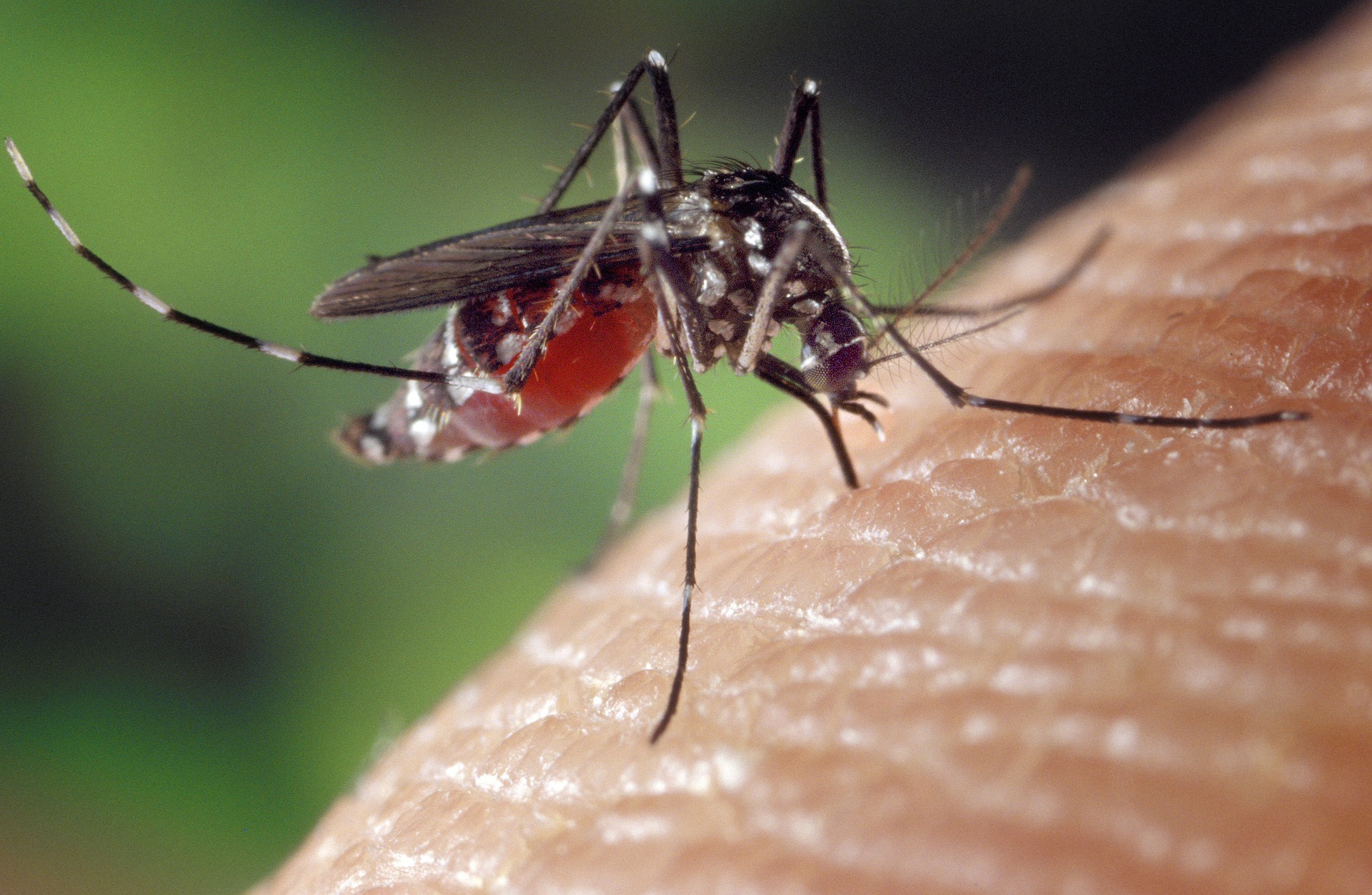A calm and relaxing camping trip can be ruined by a few irritating mosquito bites. The constant itchiness, discomfort or even allergic reaction can shy a lot of people away from enjoying the outdoors.
Personally, there’s been times when I’ve had to shelter inside my tent for hours to get respite from the swarms of mosquitoes!
So, let’s discuss how to effectively treat mosquito bites while camping. What is the fastest way to stop the itching? What treatment methods work and which ones don’t?
Pro-tip: To prevent bites from happening in the first place, check out my article How to Stop Mosquitoes and Bug Bites While Camping.
Article Contents:
Why Do Mosquitoes Bite?
Mosquitoes are attracted to humans because we provide them with a food source and a means for them to complete their life cycle.
- Female mosquitos are attracted to warm-blooded animals. The blood that they extract is used to produce eggs [Reference].
The eggs are then laid in water to hatch into larvae which then transform into adult mosquitoes, and the whole cycle repeats itself.
Why Do Mosquito Bites Itch?

The physiology of how mosquitoes extract blood sheds light on why their bites are itchy. When a mosquito lands on your skin, they use a special needle-like mouthpart to pierce the skin which is known as a proboscis.
While feeding and drawing up blood through the proboscis, the mosquito simultaneous injects saliva into the skin. Mosquito saliva is made up of a complex cocktail of proteins that aid in the extraction of blood.
- Mosquito saliva has properties that circumvents vasoconstriction (constricting of blood vessels), platelet aggregation, coagulation, and inflammation or hemostasis (blood clotting) [Reference].
Essentially, the saliva ensures the mosquito can have its fill of blood without us knowing about it and counteracts our body’s natural defences from stopping it from happening.
- The proteins found in mosquito saliva are also immunogenic to humans, which means they trigger an immune system response such as bumps, redness, and itchiness.
In most cases, the immune system response is relatively short and minor. However, in some especially sensitive individuals, the immune system response can be severe leading to fever, hives, and swollen lymph nodes [Reference].
Adults have a higher tolerance for the irritation, but kids can be especially sensitive to bites.
3 Effective Mosquito Bite Treatment Methods While Camping
There is a long list of home remedies and treatment methods for mosquito bites, but which ones are the most effective? Well, these are the 3 most effective ways to treat mosquito bites while camping.
1. Use of Ice to Reduce Inflammation
As soon as you notice a mosquito bite, one of the most effective ways to reduce swelling is to apply ice to the area. Ice reduces inflammation as well as partially numbs the area which reduces itchiness.
When applying ice, ensure that the ice doesn’t come into direct contact with the skin. Instead, use a hand towel or cloth to wrap the ice and then apply it to the affected area.
2. Use of Anti-Itch Creams to Stop Itchiness
Your camping first-aid kit should include over-the-counter anti-itch or anti-histamine creams which can provide some much needed relief from the itchiness.
Many campers, especially those with kids ages 2 and older tend to use Benadryl extra strength anti-itch gel. It contains an anti-histamine and a mild topical pain reliever to cool, sooth, and stop itchiness.
3. Mosquito Saliva Removal Device
As mentioned previously, mosquito saliva triggers our body’s immune response. And once the mosquito has fed and left, the injected saliva continues to cause irritation just under the skin surface.
So, another effective method for treating multiple mosquito bites that offers quick relief is by physically remove the mosquito saliva from the skin.
Much like drawing poison or venom out from of a bite, removing saliva increases the bodies ability to recover faster.
And, one of the most popular mosquito saliva removal devices on the market is called Bug Bite Thing. It was actually showcased on Shark Tank which got me interested in how it works!
It’s a small plastic mechanical device that works by creating a suction cup above a bite to draw out the saliva. Think of it like a reverse syringe!
But here’s the kicker, it only works if you use the device immediately after noticing a bug bite. Otherwise, it’s less effective at reducing itchiness, redness, and bumps.
Bug Bite Thing… Chemical-free, medication-free, small, light-weight, and re-useable! It’s a super handing device.
Alternative Treatment Methods While Camping
If you’re in a pinch and don’t have access to ice, anti-itch or anti-histamine creams, or a saliva removal tool, here are a few alternative mosquito treatment methods while camping.
Toothpaste
Adding a small dab of toothpaste to a mosquito bite can provide relieve from itchiness.
- Menthol in toothpaste can not only provide a cooling sensation to irritated skin, but studies have shown it has anti-bacterial and anti-fungal properties too.
The downside is that some toothpastes also contain sodium lauryl sulphate which acts as a surfactant and lathering agent.
In some sensitive people it can further irritate the skin and cause dermatitis [Reference], so use it with caution.
Honey
Honey naturally contains anti-inflammatory and disinfecting properties [Reference].
So, if you bring honey on camping trips, just apply a small dab to the infected area and it should provide relief and speed up healing.
Rubbing Alcohol
Most camping first-aid kits include alcohol swabs or rubbing alcohol for cuts and scrapes.
Applying rubbing alcohol to a mosquito bit can cool and disinfect your skin preventing further irritation and damage from scratching.
Oatmeal
Some campers carry instant oatmeal for breakfast. Well, you can also use oatmeal to treat irritated skin and mosquito bites.
A warm paste of oatmeal applied to multiple bites can reduce itchiness and irritation.
This article contains affiliate links, which help support this blog at no cost to you!
